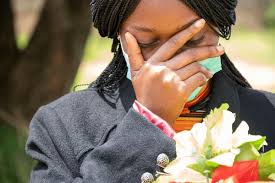In an effort to raise awareness of prostate cancer, men in Malawi are being urged to embrace an unshaven appearance as November progresses.
In order to raise money and awareness for prostate cancer, one of the most prevalent types of cancer that impact men globally, the annual No Shave November campaign challenges men to refrain from shaving their beards and hair for the whole month.
Cancer Survivor Quest’s Executive Director, Chikhulupiliro Ng’ombe, has encouraged Malawian men to participate in the campaign, pointing out that by choosing not to remove their facial hair, they will be able to better understand the difficulties and suffering that cancer patients endure.
“This simple act of not shaving gives men a glimpse of what cancer patients experience, and it’s a reminder that we need to come together to fight cancer in all its forms,” Ng’ombe said. “We need a holistic approach to the fight against cancer, with contributions from individuals, groups, the corporate sector, and the government. Together, we can ensure more people survive cancer.”
No Shave November is not just about growing beards—it’s about sparking conversations and raising funds to support cancer prevention and treatment efforts. Ng’ombe explained that during this month, men are encouraged to divert the money they would normally spend on grooming and donate it to organizations that are working to raise awareness and improve cancer care in Malawi.
The campaign has received strong support from cancer survivors and activists, who are using social media platforms to spread awareness about prostate cancer and to mobilize donations for the cause. John Mwale, one of the campaign’s vocal advocates, shared his experience participating in No Shave November for the past five years. “The fight against cancer is too big for any one person to handle alone. We all need to join forces to support cancer patients and survivors, and to work toward preventing cancer in the future,” Mwale said.
Since its founding in 2009, No Shave November has grown into an international movement aimed at raising awareness for various forms of cancer. The campaign encourages participants to embrace their natural appearance throughout the month of November, using the money saved on grooming products and services to donate to cancer-related charities.
Ng’ombe emphasized that the initiative is particularly important for men, as prostate cancer remains one of the leading causes of cancer-related deaths in men globally. “We want to ensure that more men are aware of the risks and symptoms of prostate cancer, and that they take proactive steps in seeking early diagnosis and treatment,” he said.
The Cancer Survivor Quest organization, which supports cancer survivors and works on raising awareness about cancer prevention, has been actively involved in encouraging both men and women to get involved in No Shave November. The goal is not only to increase awareness of prostate cancer but also to build a culture of support and solidarity for those affected by the disease.
With just a few days remaining in the month, Ng’ombe and Mwale are urging more people to participate in the campaign, whether by growing out their facial hair, making a donation, or simply using their platforms to spread information about prostate cancer and the importance of early detection.
“Every small step counts in this fight against cancer,” Ng’ombe concluded. “If we all contribute, whether through time, resources, or raising awareness, we can make a real difference in the lives of those affected by cancer.”
The No Shave November campaign will end on November 30, but the call for continued action in the fight against prostate cancer will persist far beyond the month.










